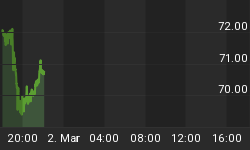The behaviour of financial markets these days is frankly divorced from reality, with value-investing banished. Markets have become distorted by Rumfield-knowns such as interest rate policy and "market guidance", and Rumfield-unknowns such as undeclared market intervention by the authorities. On top of these distortions there is remote investing by computers programmed with algorithms and high-frequency traders, unable to make human value-assessments.
Take just one instance of possible "market guidance" that occurred this week. On Thursday 16th October, James Dullard of the St Louis Fed hinted that QE might be extended. In the ensuing four trading sessions the Dow rallied over 5%. Was this comment sparked by signs of slowing economic growth, or by a desire to buoy up sliding equity markets? Then there is the vested interest of keeping government funding costs low, which raises the question whether or not exceptionally low bond yields, particularly in the Eurozone, are by design or accidental.
Those who support the theory that it is all an evil plot will also note that governments and their central banks through exchange stability funds (set up with the explicit purpose of market intervention), wealth funds and state pension funds have some $30 trillion to direct as they see fit. The reality is that there is intervention across a range of markets; but most of the mispricing is in the hands of private, not government investors. For evidence look no further than the record level of brokers' loans to buyers of equities, who with greed worthy of a latter-day South-Sea Bubble seek to gear up their speculative profits.
These are not markets with widespread public participation, buying dot-coms and the like. Instead ordinary people have given their savings and pension funds to professionals who speculate on their behalf. It is the professionals who talk about the Yellen put, meaning the Fed simply won't let prices fall significantly. We can fret about who is actually responsible for market distortions, instead we should ask who benefits.
Governments: in the past they have covered their debts through a process dubbed financial repression, when artificially low interest rates and bond yields were the principal mechanism whereby wealth is transferred from savers to the government. This process still goes on today. Forget government inflation figures: when did a bank deposit net of taxes last give a positive return after your cost of living increases?
Zero interest rate policy lays the process bare, and turns savers into borrowers. Mr Average has replaced savings with mortgages and car loans. And while the elderly and other passive savers are still defenceless against financial repression, the process has taken on a new twist. The transfer of wealth to governments now targets investment managers.
Investment and hedge funds we invest with together with the banks which take our deposits speculate on our behalf. They think that with a Yellen or Draghi put underwriting markets a ten-year government bond with a two per cent yield is an attractive investment. In doing so they are transferring financial resources to governments in a variation on old-fashioned financial repression.
Our dysfunctional markets have become little more than the essential prerequisite, as Louis XIV's finance minister Colbert might have said, to plucking the goose for the largest amount of feathers with the minimum of hissing.
















